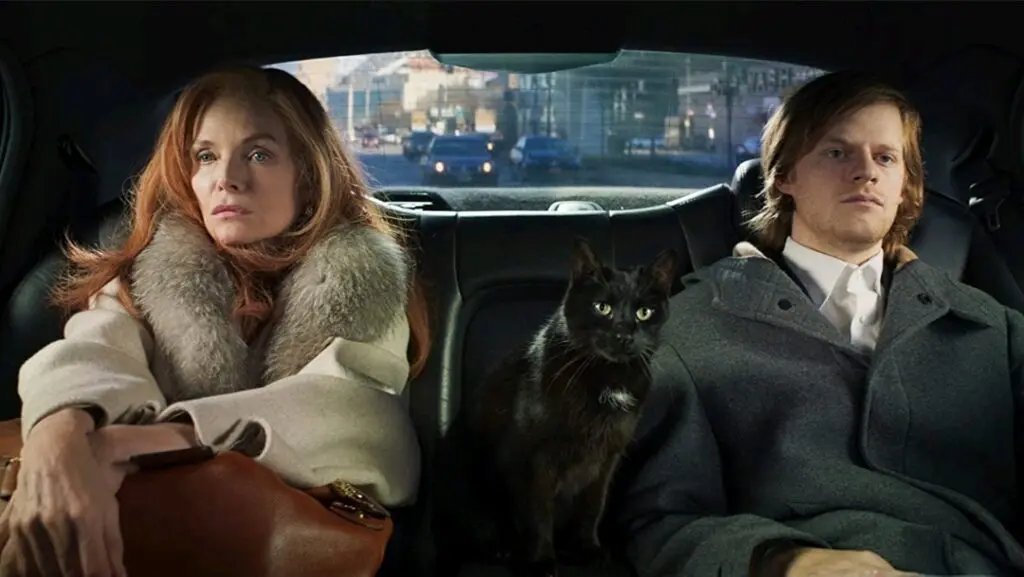Summary
French Exit is a film in love with its causticity and ambivalence, but has a Michelle Pfeiffer performance that is her best in decades.
I never knew the term ghosting was not invented by millennials, but a phrase that came from when people left a party. While watching French Exit I wondered if I would have exited if I watched it at a theatre. It is the type of high, prissy comedy that many will make excuses for, but lacks the rapier-like wit it continuously strives for. Indie darling Azazel Jacobs’s film is a strange mix of causticity and ambivalence. The characters are hard to like and care for. The one saving grace is that this is Michelle Pfeiffer’s best performance in decades.
French Exit is based on Patrick Dewitt’s acclaimed novel of a widow, Francis Price (Pfeiffer), who sells everything she owns after her husband Franklin dies. Well, he isn’t exactly dead, as Francis’s cat, Small Frank (voiced by Tracy Letts), talks to her. She moves to Paris and brings her young adult son, Malcolm (Lucas Hedges), with her. When I said, remember she sold all her assets off? Well, she is completely insolvent and plans to spend her remaining coins in Paris lavishly in a short time.

Jacobs and Dewitt are New York critical darlings and do some good work here, but then it’s such a fine line to juggle caustic characters and enough humor to balance it all for the viewer. The New Yorker praised the former’s “stealth” comic style and he must be getting better at it because it is strangely absent for most of the film here.
While the film suffers, it is Michelle Pfeiffer’s performance that almost saves it. This is easily her best performance in decades and I would argue it rivals her Susie Diamond in The Fabulous Baker Boys. It’s a reflective, cold, and insightful performance that garners the very few moments of dark humor the film manages to have.
The closest equivalent to French Exit would be Wes Anderson’s far superior and very funny Royal Tenenbaums. There, the joke is on those unlikeable characters. The breakout, live wire Gene Hackman didn’t hurt either. That film separates itself by developing a certain level of touching melancholy that Jacobs’s film tries and fails to emulate.




